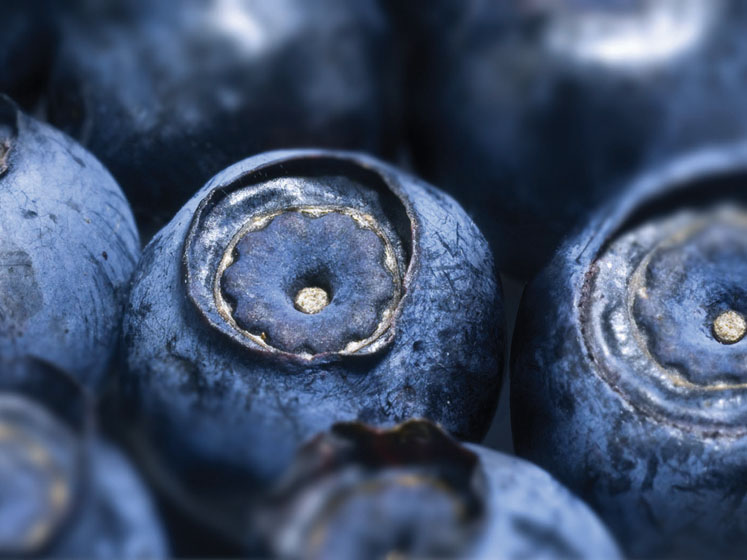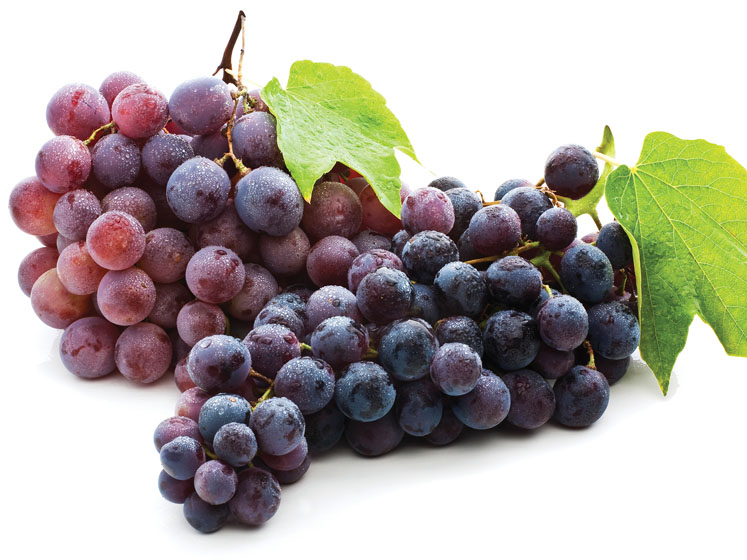This actually means actions like sustainable management of supply chain, avoiding waste along the production process, using renewable energy in the plants, taking care of workers’ wellbeing, producing sustainable extracts for human health and so on.
In such a framework, the application of the principles of circular economy is a very important commitment of the company, which applies those principles also in product design, as in the case of two of the most important extract in the Indena’s portfolio: Mirtoselect and Enovita.
Mirtoselect, Indena’s innovative bilberry extract, and Enovita, its grape seed extract, incorporate the company’s true vision of circular economy.
“Today, more than ever, we are certain that a stronger commitment to sustainability has become unavoidable and we work to face some very urgent challenges, such as biodiversity loss, food waste, climate change, health issues and social vulnerability," explains Francesca de Rensis, Marketing Director at Indena.
"Indeed, our strategy implements circular economy in product design to reduce our environmental footprint up and down the value chain and increase our efforts to upcycle food waste."
"What does it mean actually? It’s about transforming what is usually considered “waste” into raw material or energy," continues de Rensis.
"Through business models such as reuse, companies can reduce greenhouse gas emissions, pollution and biodiversity impacts: Indena considers waste and pollution as design flaws, rather than inevitable by-products of the products it makes.”
Mirtoselect and its impact on sustainability
MIRTOSELECT is Indena’s innovative bilberry extract which has a positive impact on the five major global sustainability challenges: biodiversity conservation, waste reduction, climate change, social issues and health.
Biodiversity conservation and social issues are challenges addressed mainly through a responsible management of fruit picking. In the territories where wild bilberries come from, in the Northern and Eastern Europe, bilberry picking is a cultural activity with crucial economic, social and environmental impact.
Bilberry picking is now also encouraged by some governments as a way to face biodiversity issues caused by the over-exploitation of forests’ natural resources, and timber trade in particular.
MIRTOSELECT production aims to face zero waste goal. Processing about 3000 tons/year of bilberries would normally translate into 411 tons of waste to be discarded (13,7% of the total).
But Indena’s production process is able to use all material, leading to 400 tons of recycled vegetal material every year. In fact, all fruit waste is upcycled by Indena.
The bilberry fruit has a double use: it is squeezed by the supplier to produce bilberry juice for the food market and it is extracted by Indena to produce the nutraceutical product.
The process implemented by Indena includes specific steps:
- separate the bilberry extract from sugar, part of which is reused to standardise the extract and the rest is allocated to the food industry
- separate the bilberry and ethanol, which is reused in the production itself
- fibre and seeds remaining after the first extraction and ethanol separation are reused twice, thus creating value with a by-product: omega-3 oil for the cosmetics and/or food industries and the remainder being sold to the animal food industry.
Wastewater reuse is another commitment of Indena, which processes its bilberry extract in a dedicated plant where the use of cooling water is minimised thanks to cooling towers, where water is put in contact with the air to reduce temperatures so that it can be potentially reused indefinitely.
After the production process, wastewater derived from the production process is first treated internally and then sent to the municipality filtration system. As for support to human health, MIRTOSELECT may be effectively helpful as a nutraceutical product with positive proven benefits in vascular health and ophthalmology.
Enovita: all the benefits of growing health and sustainabilty
Crafted from the essence of grape seeds mainly harvested from local vineyards, Enovita not only embodies a natural approach to support optimal blood pressure and mood, but also proudly embraces sustainable and circular principles.
Enovita’s commitment to sustainability begins with the first step in the supply chain: the use of grape seeds primarily sourced from Champagne and other French wine regions, located near Indena Tours’ s production site, reduces the carbon footprint.
With unwavering dedication to minimizing environmental impact, the production process is implemented with a comprehensive waste recovery system, ensuring that production byproducts find new life rather than burden the environment.
Enovita’s production embraces then the principles of circularity and upcycling, because the grape seeds used for extraction are essentially a by-product of winemaking.
Residual materials are transformed into seed oil for the food industry, steam from a biomass boiler, biogas suitable for energy generation, and fertilisers used to nurture the soil anew.
“By promoting local sourcing, meticulous selection of raw materials, and innovative reuse of byproducts, Enovita® champions responsible production and contributes to the pursuit of good health and well-being, aiming to achieve the UN’s Sustainable Development Goals," concludes Francesca de Rensis.


